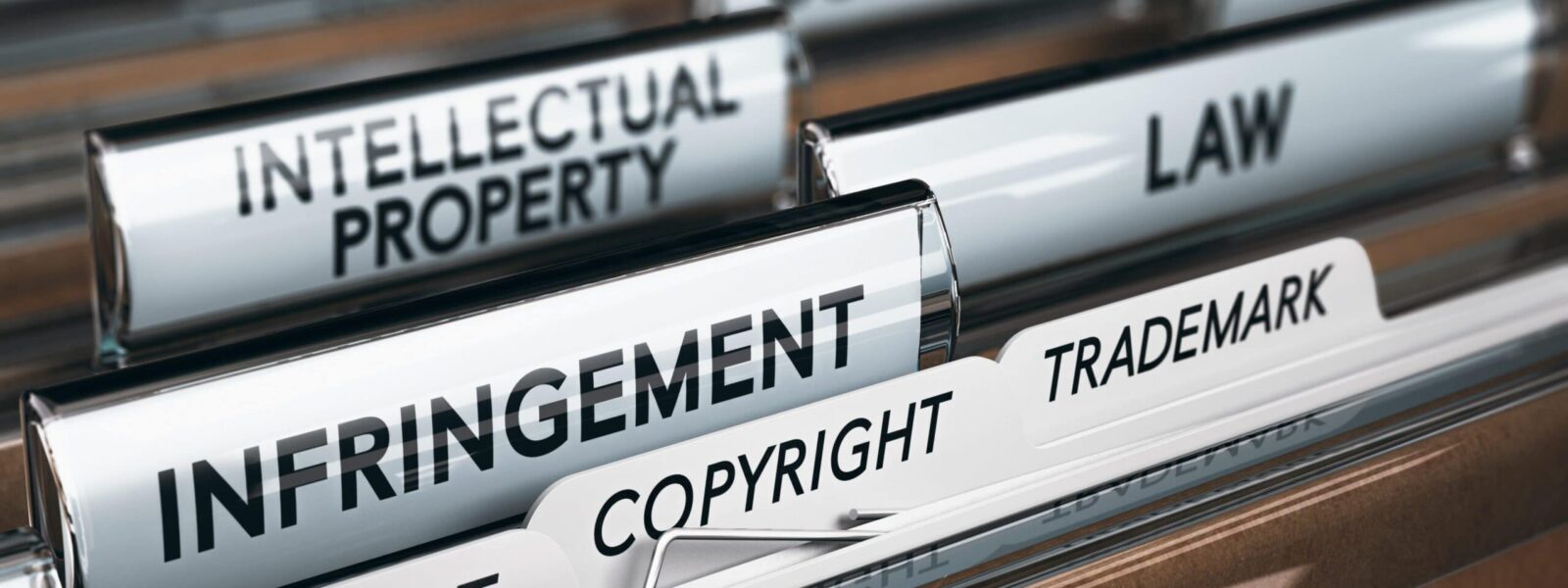The rights and ownership of intellectual property may often seem crystal clear to their creators and owners. However, Intellectual Property disputes often arise when second or third parties believe they have a claim to the property or have infringed on the owners’ rights.
If you are suffering losses or believe you have a claim to intellectual property (IP), our specialist litigation solicitors can help you recover these assets. Get in touch by calling us on 0203 007 5500 or head to our contact us page.
What is intellectual property?
Intellectual property is a broad description of intangible assets that are legally protected or owned by an individual or company. The main point of intellectual property is to protect the rights to those properties and prevent others from misusing them.
The most common examples of intellectual property are:
- Patents – the registered right that gives the owner exclusive right to features and processes of inventions
- Copyright – an automatic right, protecting artistic and creative material
- Trademark – Protecting logos, designs and branding for particular products and services
- Trade secrets – Referring to practices, processes, designs, formulas and general information that has economic value to a business
The creator of the IP usually has the rights to the material, but it can also legally be sold or transferred. Additionally, they can have more than one owner.
What are the common types of intellectual property disputes?
The most common type of IP dispute is infringement. Infringement refers to the misuse or misappropriation of intellectual property without the users’ permission. The UK government categorises IP infringement into:
- Civil infringement
- Copyright infringement
- Patent infringement
- Design infringement
- Trademark infringement
Some common ways to infringe intellectual property are:
- Taking a brand or logo from another company for your own product
- Selling a piece of intellectual property without consent
- Making copies of licensed images, audio and other media types and sharing or selling them without the consent of the copyright owner
- Registering a name, logo or slogan that is similar to that of another business
Intellectual property disputes can also arise when a business believes that their material is protected under IP laws when it is not protected at all. Therefore it is crucial to register any products for appropriate protection when required.
Lastly, intellectual property disputes can less commonly occur when a business is subject to a second party gaining access to commercially valuable company trade secrets. Trade secrets involve no registration costs and take immediate effect for protection. These secrets are often also protected in agreements and contracts signed by employees. Therefore, sharing a trade secret may also involve a breach of contract.
What are some remedies for intellectual property disputes?
- An injunction preventing a company from making future infringements
- The victim of infringement will likely seek compensation for the losses suffered from the infringement
- Destruction or withdrawal of the infringing material
- Publication of the verdict in the relevant trade press
Coexistence agreements.
To avoid a dispute, businesses can make a coexistence agreement. These allow two parties to trade using the same or a similar trademark without fear of infringement. It is a legally binding agreement with terms and conditions that depend on the type of business and the outlined shared material between the companies. For example, coexistence agreements may include designs, copyright and patents. Only the parties involved can make the negotiations for the details and terms of the contract.
What is intellectual property indemnity?
If a business holds the rights to intellectual property, they will want to make sure that their IP is protected. In an agreement, there are often clauses that relate to indemnity. An indemnity is a legal obligation for a party to repay and compensate specified losses.
Do I own the intellectual property that I create?
It is generally a rule that the creator of the IP is the first owner of the IP rights. However, if a property is created during employment, it often belongs to your employer. Not all kinds of IP are owned by the employer in cases of commissioned work, the commissioner may be the rightful owner. In some cases, the employer or commissioner can claim equitable ownership – rather than legal ownership – to gain an income from the IP.
What are the sentences for breaching an intellectual property agreement?
There are many ways to infringe intellectual property rights, so it is difficult to measure the sentencing guidelines.
For example, deliberately infringing copyright (copying CDs or DVDs, for example) is a criminal offence. Patent infringement however, is a civil law matter, not a criminal law issue.
When deciding a sentence, the court will assess the seriousness of the infringement, whether it was deliberate or not, and other factors such as the resulting cost of the infringement.
How to get intellectual property rights.
If you have protection set up for your intellectual property, it will make it easier to take action if anyone tries to steal or misuse it. The kind of protection you can apply for depends on the type of material that you need to protect. Therefore each of these has different amounts of time for application:
Automatic protection:
- Copyright
- Design right
Protection you have to apply for:
- Trademark – 4 month application
- Patent – These can take up to or over 5 years
- Registered design – 1 month application











Leave a comment Your email address will not be published.